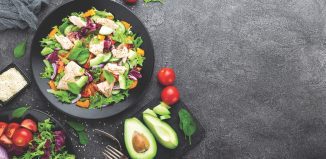How to help prevent the flu this winter
Exercise helps to boost the vaccine’s effect; green tea and hand sanitizers are also beneficial
If you have been on a distant planet, you may not know that we are in the middle of the flu season. The rest of us by now have had colleagues, friends, family members, and possibly ourselves, who have confronted the influenza virus.
If you think the flu season has been worse than in recent years, you’re right. The centers for disease control preliminary data indicate outpatient visits for the flu have been more than twice the baseline (CDC.gov). The good news is that the most recent comments from the director of the CDC, Dr. Thomas Frieden, suggest that we are over the hump.
According to the CDC the present vaccine is 62 percent effective. The statistic for this year’s vaccine is derived from a case study involving 1155 children and adults (MMWR Morb Mortal Wkly Rep. 2013;62). Though this is moderate, it is still reducing the risk by more than half. However, by no means is the vaccine’s coverage perfect.
I know some have hesitancy toward the vaccine because it contains eggs and thimerosal, a preservative that is organic mercury-based. A concern is that this preservative may increase neurotoxicity risk. There are trace amounts in the flu vaccine. Those with allergies to eggs should also not receive the standard vaccine.
If you are uncomfortable with the egg or thimerosal, there is good news. The FDA has recently approved a flu vaccine, Flublox, that is both eggless and does not contain the preservative thimerosal (www. FDA.gov). It uses a recombinant DNA technology that does not require inactivated virus. It is available this year in limited quantities and will be readily available for next year’s flu season. Currently, Flublox is approved for patients 18 to 49 years old.
So what can we do to decrease the chances of getting the virus following vaccination? Actually, there are several studies that show that exercise helps boost the vaccine’s effects.
Impact of exercise
We know that exercise plays an important role in altering and improving disease processes in general, but did you know that exercise may increase the effectiveness of the flu vaccine? In particular, elderly patients tend to have weaker immune responses to pathogens, such as the flu. In a study looking at the older population, those who walked with alacrity regularly for 10 months demonstrated higher antibody levels 24 weeks after getting the flu vaccine, compared to those who stretched and did balancing exercises (J Am Geriatr Soc. 2009 Dec;57(12):2183-91). This helped boost their immunity and improved the results from the vaccine.
So what if you haven’t exercised for almost a year and are not in cardiovascular shape? Is it too late for this year’s flu season? The answer is a resounding no.
Another study showed that people who did 20 minutes of eccentric exercise using the arm that would receive the vaccine on that same day also had higher titers of antibodies several weeks later, compared to those who were sedentary (Brain Behav Immun. 2007 Feb;21(2):209-17). Women had an increase in B-cell activity, part of the immune response, six and 20 weeks later. In men, there was an increase in cell-mediated activity, another part of the immune system, which includes T-cell activity, natural killer cells and phagocytes, with levels measured eight weeks after vaccination. Participants were given the vaccine six hours after exercising.
The exercises included several sets of weighted bicep curls and lateral arm raises for the shoulders. Eccentric exercises involve lowering weights, rather than lifting them. For example, if you are doing shoulder exercises, you slowly lower the weight from your shoulder to your side. This helps to elongate the muscles.
This was a randomized controlled trial, the gold standard of studies, in 60 young, healthy adult participants. The authors surmise that the inflammation due to exercises may have been the mechanism that helped boost the effect of the vaccine.
Green tea
The great thing about green tea is that it may have benefits for many diseases and their prevention. But, did you know that green tea may actually help prevent the influenza virus? In an observational study involving over 2,000 Japanese elementary schoolchildren, those who drank green tea at least six days a week were 40 percent less likely to get the flu than those who drank green tea three or fewer days per week (J. Nutr. 2011;141(10):1862-1870). Results were confirmed using an antigen test to detect the virus.
In a separate study, health care workers who took daily green tea supplements in an RCT saw a significant reduction in the incidence of the influenza virus than the placebo group (BMC Complement Altern Med. 2011 Feb 21;11:15). The supplements contained two compounds in green tea: 378 mg of catechins and 210 mg of theanine. There were 197 participants in the study.
Hand sanitizers
Many of us use hand sanitizers regularly. Are they beneficial or dangerous? It turns out that hand sanitizers may help reduce the transmission of the flu vaccine by breaking down the lipid envelope of the virus.
In a small study, healthy participants were subjected to the flu H1N1 strain on their fingertips. They were then randomly given wipes, foam or gels that contained at least 60 percent alcohol (Am J Infect Control. 2012 Nov;40(9):806-9). It did not matter which vehicle was used to deliver the sanitizer, they all worked equally well to reduce the viral load significantly.
Be careful not to overutilize sanitizers as they may dry out the skin and cause cracking, allowing pathogens to invade the body. Sanitizers should not replace washing your hands with soap and water, but rather be an additional defense.
Although this year’s flu season seems like it is one of the more dramatic, there are ways to reduce the risk. Exercise is a great way to improve your immunity, particularly in combination with the vaccine. It may also help those who are obese, and thus may have decreased immune functioning. And drinking green tea should be easy, since flu season is during the cold weather.
Dr. Dunaief is a speaker, author and local lifestyle medicine physician focusing on the integration of medicine, nutrition, fitness and stress management. For further information, go to the website www.medicalcompassmd.com and/or consult your personal physician.






